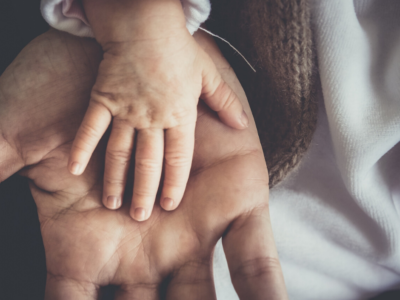Georgia’s Equitable Caregiver Act Establishing Parental Rights of Non-Biological Caregivers
June 3, 2020
By Lindsey C. Franklin
Stepparents are often responsible for caring for and financially supporting minor children. Under O.C.G.A. § 19-7-3.1, Georgia’s new Equitable Caregiver Act legally recognizes stepparents as caregivers and the care they provide to minor children.
Traditionally, Georgia law permitted individuals with a familial relationship to a child to petition the court for parental rights. This included parents, grandparents, siblings, aunts, uncles, but excluded stepparents and other persons who provided care and support for a minor child with whom they did not share a biological link. Although Georgia’s Equitable Caregiver Act does not extinguish the rights of the biological parents of the child, the Act does provide that an unrelated third party who has a long-term bonded parental role in the child’s life may now petition the court to establish legal rights to provide continued care and support for the minor child.
Do I qualify as an Equitable Caregiver?
An individual who only has a tangential relationship to a minor child will not be successful in obtaining parental rights under the new statute. To be considered as an Equitable Caregiver, an individual must prove to the court that he or she has:
(1) Fully and completely undertaken a permanent, unequivocal, committed, and responsible parental role in the child’s life;
(2) Engaged in consistent caretaking of the child;
(3) Established a bonded and dependent relationship with the child, which was fostered or supported by a parent of the child, and such individual and the parent have understood, acknowledged, or accepted or behaved as though the person seeking Equitable Caregiver rights is a parent of the child; and
(4) Accepted full and permanent responsibilities as a parent of the child without expectation of financial compensation. O.C.G.A. § 19-7-3.1(c).
What do I need to prove to the Court that I am an Equitable Caregiver?
In addition to the factors listed above, the equitable caregiver must prove to the court that the child will suffer physical or long-term emotional harm if the relationship is severed and that continuing the relationship between such individual and the child is in the best interest of the child. O.C.G.A. § 19-7-3.1(d).
When determining the existence of harm, the court will look at the following factors:
(1) Who are the past and present caretakers of the child;
(2) With whom has the child formed psychological bonds and the strength of those bonds;
(3) Whether competing parties evidenced an interest in, and contact with, the child over time; and
(4) Whether the child has unique medical or psychological needs that one party is better able to meet. O.C.G.A. § 19-7-3.1(e).
What are my next steps to become an Equitable Caregiver?
Previously, upon divorce or death, a stepparent was often left helpless at the conclusion of a romantic relationship to continue their close relationship established with their partner’s child. Now, Georgia’s Equitable Caregiver Act gives stepparents and other adults who have bonded with a child the opportunity to petition the courts to establish custodial rights.
If you believe that you may qualify as an Equitable Caregiver of a child, it is important for you to take the time to consult with a legal professional.
Lindsey C. Franklin is an associate attorney with Flint, Connolly & Walker, LLP currently representing clients on various civil matters. Whether you are interested in pursuing your parental rights as an equitable caregiver or seek advice on other family law matters, she and the other attorneys at Flint, Connolly & Walker, LLP have the knowledge and expertise to help you.

